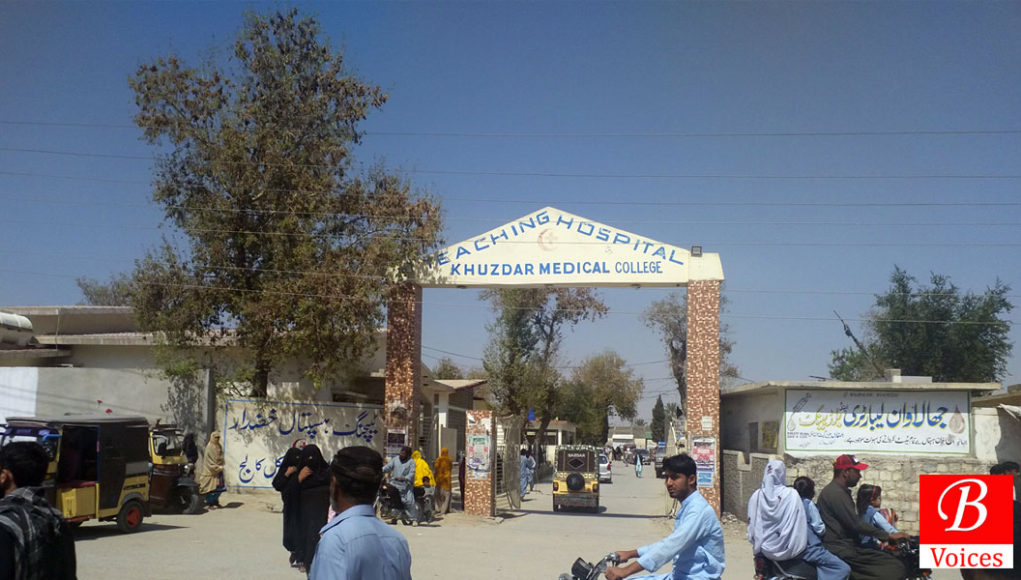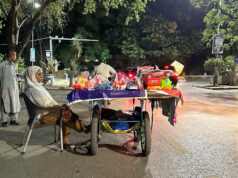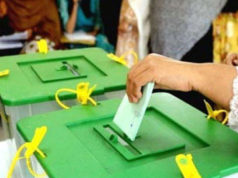In terms of population, Khuzdar is the largest district of Kalat Division which is comprised of 7 districts. Khuzdar outnumbers all the respective districts with a total population of 802,207 whereas the overall population of Kalat Division, as per the census 2017, stands at around 2.5 million. With a total area of 35,380 sq/km, NA 269 catapults a parliamentarian to National Assembly in every general election from Khuzdar constituency.
Interestingly, in terms of providing health facilities to the masses, district Khuzdar retains a significant place. District Headquarter Hospital (DHQ) also known as Civil Hospital Khuzdar is the second largest surgical hospital after Quetta Civil Hospital. Dealing with an intricate affair of patients who flock in throughout the 7 districts ranging from district Kalat, Lasbela [second largest district of Kalat Division with a total population of 574,292] to Awaran, reflects a pathetic picture because of receiving a high number of patients.
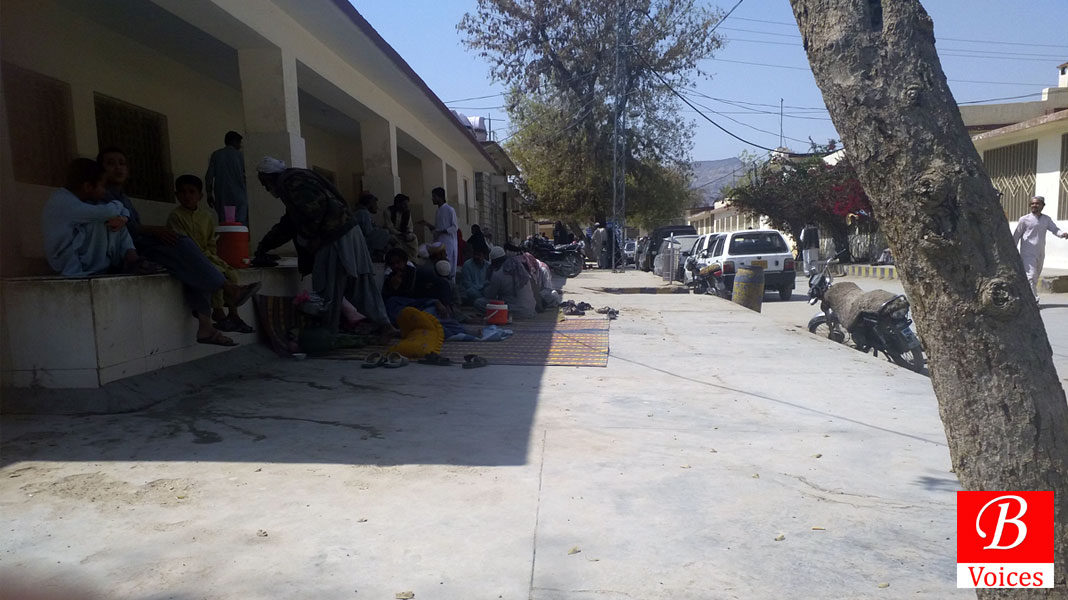
Having been upgraded into a teaching hospital [which is under construction at the moment], burden on already understaffed hospital has increased. In November 2016, media highlighted the issues related to the Civil Hospital Khuzdar. As per the report the hospital lacked a proper staff. There were, as the report suggested, around 50 vacant posts of teaching staff which had enhanced the hurdles for the hospital. The post of an anaesthetist, quite interestingly to note here, has been lying vacant since 2016. The work of an anaesthetist done by trained doctors.
“There are at least 14 posts lying vacant at the moment which need to be filled,” says a hospital official who wishes not to be named. “With issues circling the hospital, scarcity of budget lies at the core of the issues. The budget is not enough for managing the affairs of the hospital,” he complains.
Management in Shambles
‘Brother,’ the electrocardiographer calls the patient, ‘your electrocardiography is not normal. Electrocardiograph records some abnormalities in palpitation. It is, perhaps, due to obesity you are suffering from. You had better lose your weight,’ explains the electrocardiographer to the patient who is lying on bed for his Electrocardiography (ECG) in a quite congested room inside main OPD at Civil Hospital Khuzdar.
The discussion transpired between the patient and electrocardiographer, led to seeking medication from the electrocardiographer about a certain stomach problem, which has disturbed the patient for a long. Finally, the matter was over after the patient received some satisfaction by the prescription suggested by the electrocardiographer.
Such are not the unusual cases where doctors along with staff seem engaged in guiding patients about the concerned and particular specialist/doctor for the specific ailment the patients are suffering from.
“Here we are engaged in a dual work. Firstly we have to guide a patient to the concerned doctor or specialist to meet, and secondly, we have to do our work,” complains a hospital staff. “The OPD is thronged with patients. Doctors waste their time in guiding the patients since the hospital lacks management. A malaria patient enters into the room of a general surgeon then the surgeon has to guide him to meet a specialist sitting in another room. This process wastes a lot of time while the queue of patients keeps growing,” he laments on the pathetic condition of OPD management.
“Once in a school, where my children also study, a sudden and an allergic disease attacked many children. When they were shifted to the emergency of Civil Hospital, no any medicine or first aid to save the lives of children was available,” says a civil society activist Huma Raisani.
There is a dearth of medicines in case an emergency occurs, she says while showing here concern over lack of management at the hospital.
Trauma Centre: The Need of the Hour
Balochistan makes a significant place when the matter of fatal road accidents surfaces up. Data available with this newspaper draws a gloomy picture of road accidents that have occurred in the course of 10 years. As per the data available, the ‘road accidents’ have killed more people than the people died in suicide blasts in the course of 10 years. In 31 suicide blasts 488 people have lost their lives, however, the deaths related to 3,797 road accidents shoot up as high as 2,238 in the same duration of 10 years.
In the context of high road accidents which often happen near Khuzdar, most of the injured are rushed to the ’24 hour’ emergency facility of Khuzdar hospital, yet the condition exacerbates due to lack of staff available at the emergency.
“A surgeon is left alone to deal with cases related to bone injuries. An orthopaedic is the suited doctor to be available at the time of severe cases, however, there is lack of an orthopaedic,” a hospital official laments.
“A surgeon can deal with an orthopaedic case mostly related to road accidents, but given the lack of staff, a trauma centre is the need of the hour to deal with multiple cases. A trauma centre can decrease the burden of the understaffed hospital, as it has specialists who can deal with different cases in case an emergency happens,” explains an ophthalmologist, Dr Riaz Karim Rind.
Understaffed but Striving
Dealing with a hundred patients flocked in general OPD, doctors and staff of the Civil Hospital Khuzdar seem busy while treating, rebuking and guiding the patients. Recently, with help of administration and staff, the hospital has managed to acquire two dialysis machines which worth billions. The dialysis work remains functional for the patients once who used to travel to Sindh Institute of Urology and Transplantation (SIUT) Karachi for this purpose.
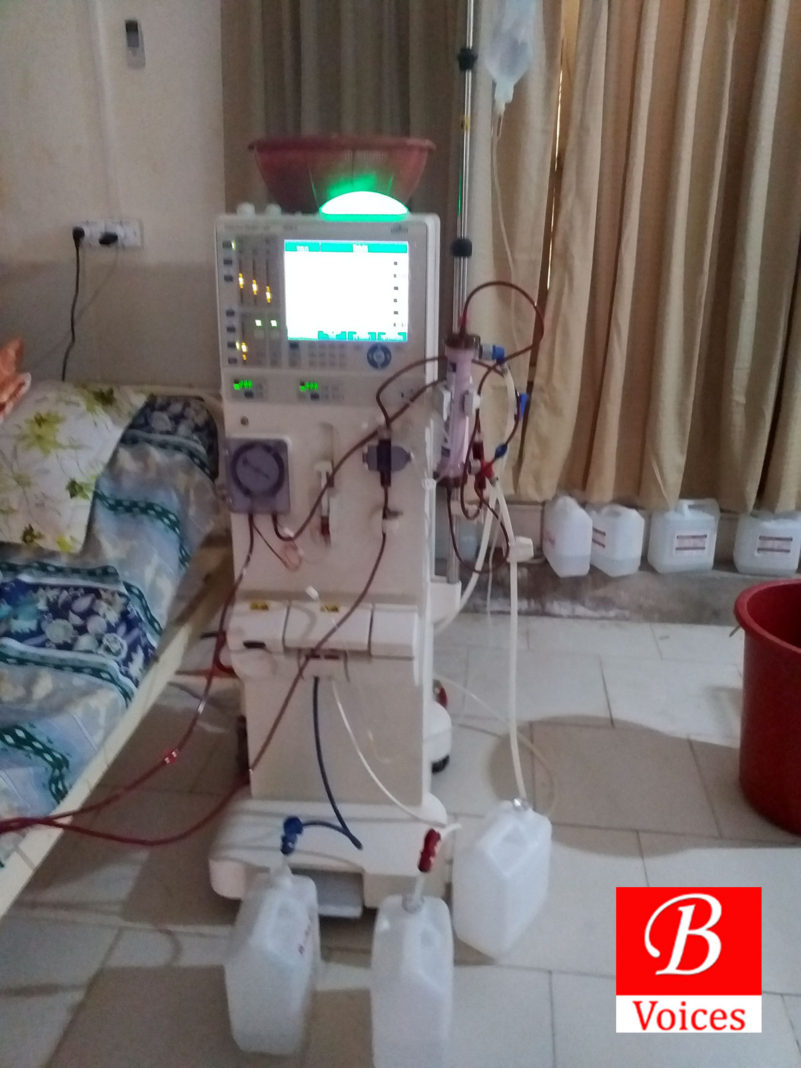
“I have been getting my dialysis from Civil Hospital for last 6 months. Before, I had to travel Karachi for dialysis. Doctors are much careful about my health,” says a patient.
“Though we have been doing dialysis on daily basis, yet non-availability of electricity is a huge hurdle in our work. With lack stand-by generators, we suffer in the hands of load shedding,” complains Dr Sarwar, in charge of Nephrology department at Civil Hospital Khuzdar.
Operating Under Budgetary Constraints
“With 45 union councils, Khuzdar district is reckoned among large districts in the country. It, indeed, lacks medicine and health budget, yet we are trying to overcome the issue on war-footing bases,” says District Health Officer, Soomar Khan Baloch, who heads Health department in District Khuzdar.
With upgradation of the Hospital to have a teaching facility, the hospital not only needs hundreds of employees at lower level, but numerous positions at the high level also lie vacant. Doctors often seem unwilling to come to Khuzdar, he adds.
Yahya Reki also contributed to this report
Share your comments!


